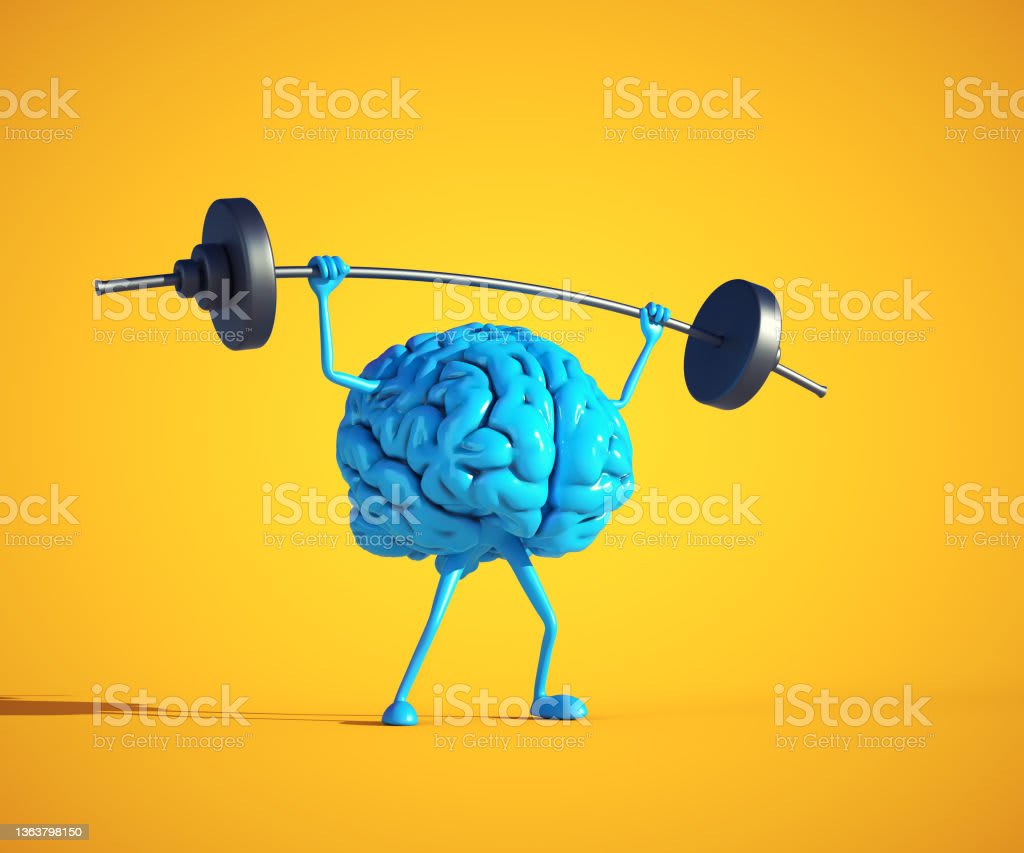How I Tricked My Brain To Like Doing Hard Things (dopamine detox
And is there a way to make doing difficult things, easy?

You likely don't have an issue playing computer games or perusing virtual entertainment on your telephone.
Truth be told I have no question you could sit before a screen and do both of those exercises
for 2 hours, or considerably longer without breaking your focus.
Be that as it may, shouldn't something be said about 30 minutes of examining?
Yikes.
That may be excessively hard.
What about dealing with your side business for one more hour?
Gee.
Doesn't sound excessively engaging.
Despite the fact that you legitimately know that research, working out, building a business or something like that
similarly useful, will bring you more advantages over the long haul, you actually favor observing
Television, playing computer games and looking at online entertainment.
One could contend that it's conspicuous why.
One movement is simple and doesn't need a lot of exertion, while the other action is troublesome
furthermore, it expects you to put forth a concentrated effort.
Yet, certain individuals appear to have no issue contemplating, working out, or chipping away at their side ventures, consistently.
Which makes one wonder: For what reason are certain individuals more spurred to handle troublesome things?
What's more, is there a method for making doing troublesome things, simple?
To respond to this inquiry, we really want to see this cerebrum synapse: Dopamine.
Dopamine is many times thought about a joy particle.
Yet, that is not exactly what it does.
Dopamine makes us want things.
Also, that want gives us the inspiration to get up and do stuff.
In the event that you don't know how strong dopamine is, let me acquaint you with a couple of examinations
neuroscientists did on rodents.
The analysts embedded cathodes in the cerebrums of rodents.
Whenever the rodent pulled a switch, the scientists animated the rodent's prize framework in the cerebrum.
The outcome was that the rodents fostered a hankering areas of strength for so continued to pull the switch, over
what's more, over for a really long time.
The rodents would decline to eat or try and rest.
They would simply continue to press the switch until they would drop from weariness.
However at that point the interaction was switched.
The analysts impeded the arrival of dopamine in the cerebrum's award place.
Subsequently, rodents turned out to be dormant to the point that in any event, getting up to get a beverage of water was
not worth the work.
They wouldn't eat.
They would have rather not mated.
They longed for nothing by any stretch of the imagination.
You could say that the rodents lost all will to live.
Be that as it may, on the off chance that food was put straightforwardly in their mouths, the rodents would in any case eat and appreciate
the food.
They simply didn't have the inspiration to get up and do it without anyone else's help.
You would feel that thirst or yearning inspires us to get food or water.
But on the other hand there's dopamine that assumes a critical part here.
Those rodent trials may be outrageous cases.
Yet, you can see comparable impacts dopamine has in people and in our regular routines.
As a matter of fact, your mind creates needs to a great extent founded on how much dopamine it's
hoping to get.
On the off chance that a movement delivers too little dopamine, you will not have a lot of inspiration to make it happen.
Be that as it may, assuming an action delivers a ton of dopamine, you'll be roused to rehash it, again and again.
So which ways of behaving discharge dopamine?
Any action where you guess there's a likely prize, discharges it.
Be that as it may, assuming that you realize there are no quick awards with the way of behaving, your cerebrum won't deliver it.
For instance, before you eat solace food, your mind discharges dopamine, since you
guess that the food will encourage you.
Regardless of whether it really aggravates you.
That is on the grounds that your mind couldn't care less assuming the high dopamine action is harming
to you.
It simply needs a greater amount of it.
A cliché model would be somebody who's a medication fiend.
He realizes that what he's doing isn't great for him.
In any case, all he needs is to get a greater amount of that medication.
Other than getting you high, cocaine and heroin discharge unnatural measures of dopamine, which
thusly causes you to desire them much more.
Obviously it must be noticed that almost all that delivers some measure of dopamine.
In any event, drinking water when you're parched, does.
In any case, the most noteworthy dopamine discharge happens when you get a prize haphazardly.
One such model is playing on a gambling machine in a club.
Regardless of whether you've just been losing cash until that point, you ultimately hope to get a
greater prize.
You simply don't have the foggiest idea when it could work out. What's more, in the present computerized society, we are flooding
our minds with unnaturally high measures of dopamine consistently, regardless of whether we
know it.
A few instances of high dopamine ways of behaving include: looking at online entertainment sites, playing
computer games, watching web erotic entertainment, and so forth.
We expect a compensation with every single one of those ways of behaving of some kind or another.
That is the reason we're continually looking at our telephones.
We hope to see an instant message or another notice.
What's more, we realize that in the end we will get it.
We're becoming like those rodents pulling the switch, binds to get another dopamine hit.
Furthermore, you could think, "Goodness so what?"
"Dislike it's hurting me at all."
However, you'd be off-base.
Our bodies have an organic framework called homeostasis.
It implies that our body likes to keep interior physical and synthetic circumstances at a fair level.
At the point when an unevenness happens, our body adjusts to it.
Allow me to give you a model: When it's chilly outside, our internal heat level falls.
What's more, thus, we begin shuddering to produce heat and warm the body.
Anyway when it's hot outside, our internal heat level ascents.
Also, we begin perspiring to lose a portion of that intensity.
Basically our body is hoping to keep a temperature of around 37 degrees Celsius
or then again 98 degrees Fahrenheit, come what may.
Be that as it may, there is another way homeostasis shows itself.
What's more, that is through resistance.
For instance, somebody who seldom drinks liquor, will get tipsy super quick.
Be that as it may, somebody who drinks consistently, should drink more liquor, in light of the fact that their
body has fostered a resilience to it.
Basically it takes increasingly more liquor to make them tanked, in light of the fact that they've become
less delicate to its belongings.
What's more, it's not vastly different with dopamine.
Your body attempts to keep up with homeostasis, so it down-controls your dopamine receptors.
Basically your mind becomes acclimated to having elevated degrees of dopamine and those levels become
your new ordinary.
Hence you foster a dopamine resistance.
This can be a tremendous issue, in light of the fact that the things that don't give you as much dopamine, don't
interest you any longer.
Also, persuading yourself to do them is considerably more troublesome.
They feel exhausting and less tomfoolery, since they don't deliver as much dopamine, contrasted with
the things that truly do deliver it in high sums.
That is the reason individuals will more often than not favor playing computer games or perusing the web, contrasted with
considering or dealing with their business.
Computer games cause us to feel much better and agreeable, as they discharge a ton of dopamine.
Unfortunately things like trying sincerely or perusing, discharges it in lower sums.
This is one reason why medication junkies who attempt to stop, struggle with acclimating to
a typical life.
Their dopamine resistance gets so high that typical life can't match it.
They become like those rodents from past tests who have no inspiration to do anything
in the event that there's insufficient dopamine discharge.
Furthermore, it's not simply drug junkies.
Individuals who are dependent on computer games, web-based entertainment or web porn experience the
same thing.
When their dopamine resistance gets excessively high, they basically can't appreciate low dopamine
ways of behaving.
Which makes one wonder: Is there whatever should be possible to forestall this?
The response is you really want to play out a dopamine detox.
At this point could as of now have a thought what dopamine detox will resemble.
What you will do is saved a day, where you will stay away from all the exceptionally
animating exercises.
You will quit flooding your cerebrum with high measures of dopamine and you're going
to let your dopamine receptors recuperate.
Simply a disclaimer: On the off chance that you're experiencing a chronic drug use, I recommend you look for
proficient assistance, as you've most likely framed a physiological and mental reliance.
Furthermore, I don't believe that you should encounter any outrageous withdrawal side effects.
Presently back to the detox.
For 1 entire day you will attempt to have a good time as could be expected.
You will not be utilizing the web, or any innovation like your telephone or PC.
You're not permitted to pay attention to music, you're not permitted to jerk off or eat any low quality food.
Fundamentally you will eliminate all wellsprings of outside joy all day long.
You will embrace fatigue.
What's more, trust me, there will be a ton of fatigue.
You are anyway permitted to do the accompanying: Take a walk.
Reflect and be distant from everyone else with your viewpoints.
Ponder your life and objectives.
Record any thoughts you get.
Not on your PC or telephone, but rather on an actual piece of paper.
All of this could appear to be very serious.
In any case, assuming you need revolutionary outcomes and you need them quick, you should have the option to make an extreme move.
Presently you may be asking yourself: How could this try and work?
You can imagine it along these lines.
Suppose that you've been eating each and every feast at the best café in your town.
Subsequently, what happened is that those extravagant feasts turned into your new ordinary.
On the off chance that somebody offered you a bowl of plain rice, you would likely decline.
It essentially wouldn't taste comparable to your typical eatery dinner.
Be that as it may, assuming you out of nowhere wind up abandoned on a remote location and you're starving,
out of nowhere that bowl of plain rice doesn't appear to be so terrible.
Furthermore, that is the thing the dopamine detox does.
It keeps you from all the delight you generally get, and thusly, it makes those less fulfilling
exercises more alluring.
To becomes laid it out plainly: Dopamine detox works since you become so exhausted, that exhausting stuff
more tomfoolery.
Presently if you would rather not make a such outrageous move and keep yourself from all the delight,
you can play out a more modest dopamine detox.
You will pick one day of the week, where you will abstain from one of
your high dopamine ways of behaving totally.
No matter what.
Perhaps checking your telephone constantly, playing computer games on your PC, marathon watching
Television, eating unhealthy food, observe





Comments
There are no comments for this story
Be the first to respond and start the conversation.